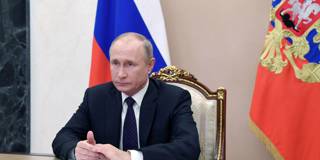Recent amendments to Russia’s constitution reflect the political and economic changes that have taken place during President Vladimir Putin’s 20-year rule. Above all, they abolish the fundamental constitutional principle of power rotation, and fix the institutional framework of what is now a mature authoritarian state.
MOSCOW – Earlier this year, Russian lawmakers and voters approved amendments to the country’s constitution that would allow President Vladimir Putin to reset the term limits of his office and prolong his rule until 2036. Even if he decides not to exercise this option, a proposed law that would greatly expand former Russian presidents’ criminal immunity will protect him from prosecution. Other constitutional amendments establish the primacy of Russian law over international law, define marriage as the union between a man and a woman, and protect official historical discourse from falsifications.

MOSCOW – Earlier this year, Russian lawmakers and voters approved amendments to the country’s constitution that would allow President Vladimir Putin to reset the term limits of his office and prolong his rule until 2036. Even if he decides not to exercise this option, a proposed law that would greatly expand former Russian presidents’ criminal immunity will protect him from prosecution. Other constitutional amendments establish the primacy of Russian law over international law, define marriage as the union between a man and a woman, and protect official historical discourse from falsifications.